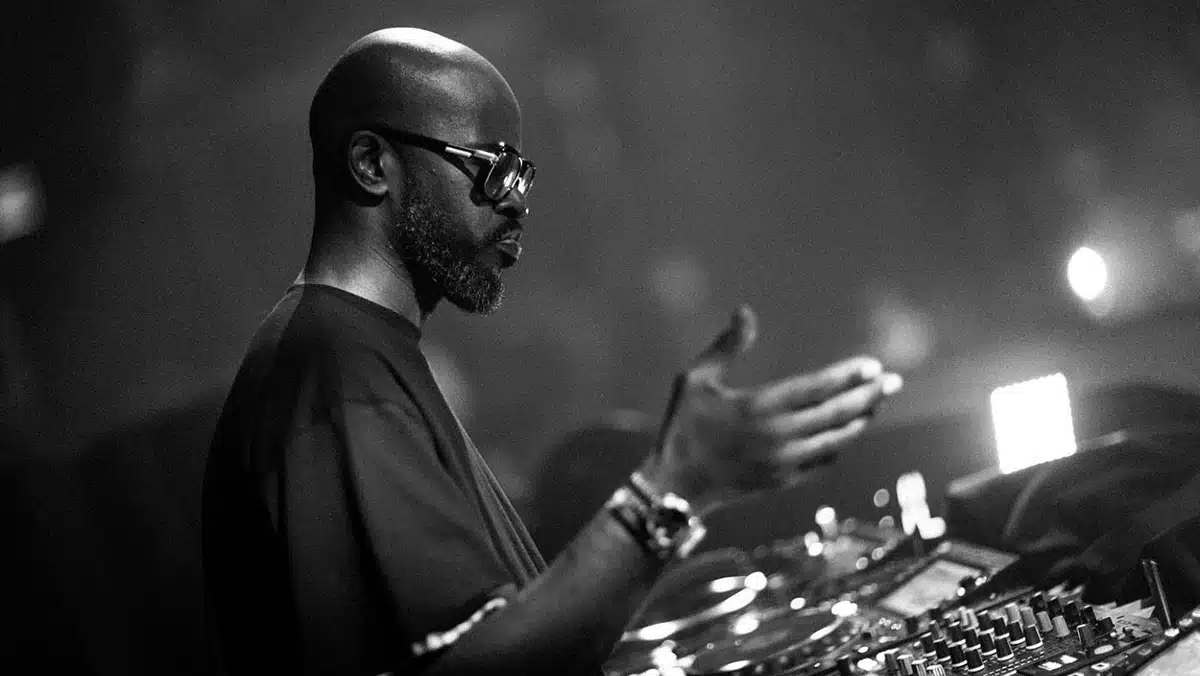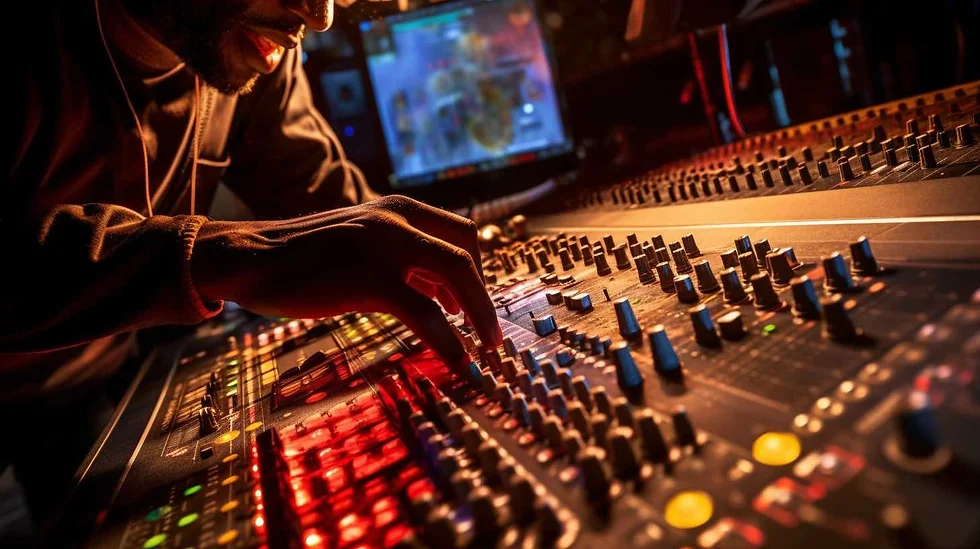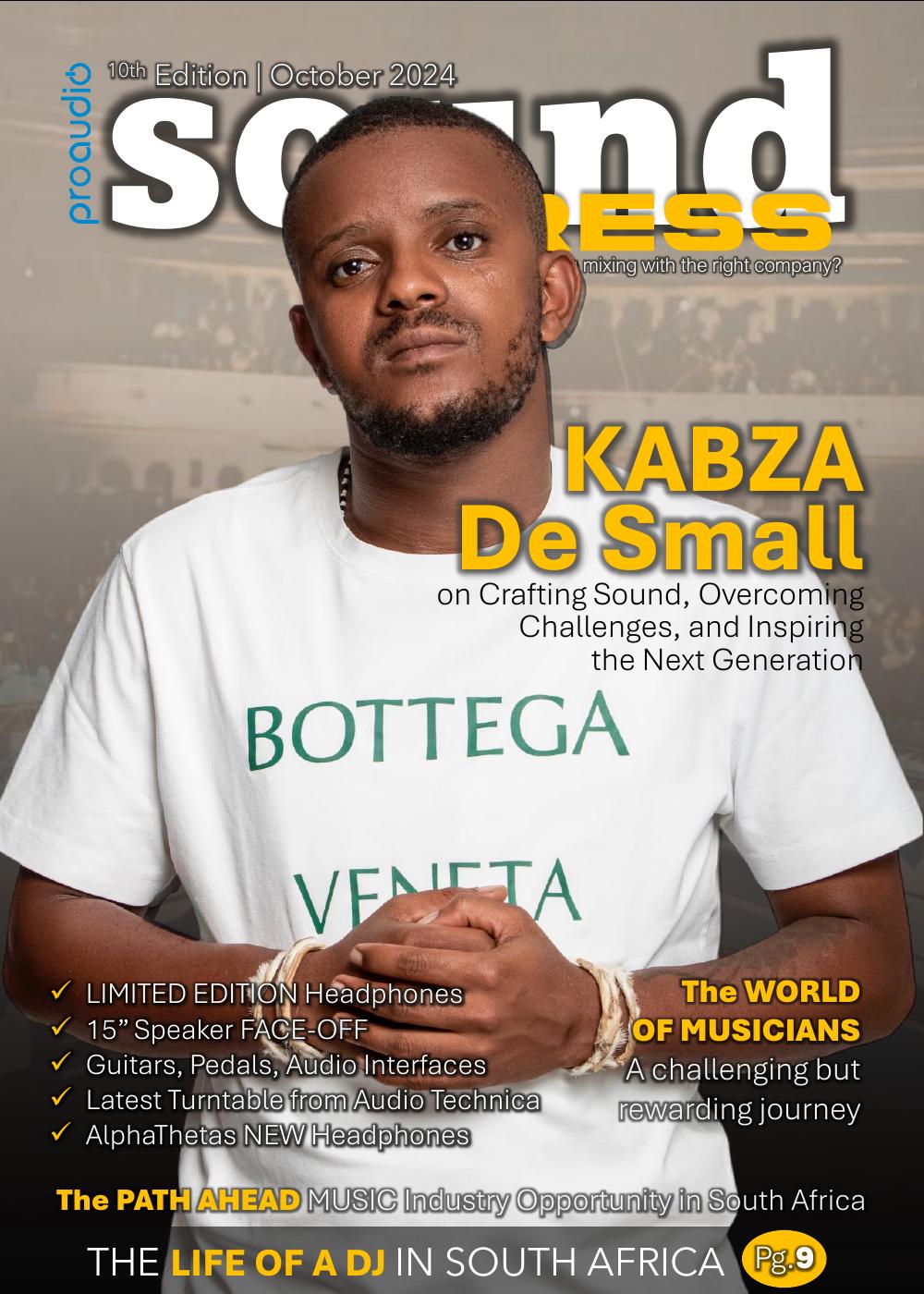BREAKING
Into The Industry
The PATH Ahead
DJs, Studio Artists, and Sound Engineers on the RISE.
Whether you’re behind the decks as a DJ, sitting at the mixing desk as a sound engineer, or producing tracks in a studio, the key is to stay focused, passionate, and always striving for excellence. With brands like Pioneer DJ, AlphaTheta, Audio Technica, Midas, PowerWorks, and HK Audio providing the tools, you have what you need to take your career to the next level.
The music industry in South Africa is a dynamic and ever-evolving space, with DJs, studio artists, and sound engineers at the forefront of creating the sounds that define the culture. Whether you’re a DJ spinning at clubs, a producer crafting tracks in the studio, or a sound engineer shaping the live experience, the journey to success in this field is filled with unique challenges and opportunities. As we head toward the end of the year, it’s a crucial time for many in the industry to reflect, improve, and set their sights on achieving their goals.

BREAKING INTO THE INDUSTRY
For many aspiring DJs and sound engineers, the road into the industry can be tough. South Africa’s music scene is diverse, covering a wide range of genres from house and electronic dance music to hip hop, gospel, and afrobeat. While this provides ample opportunities for specialization, it also means there’s fierce competition.
Getting started often involves a combination of passion, training, and connections. Many South African DJs and producers begin by learning on their own, experimenting with Pioneer DJ controllers or other entry-level equipment, often found through the likes of AlphaTheta, which provides many of the core tools for DJing. Others might attend DJ schools or technical institutes, where they learn the craft of production, mixing, and live performance. For those interested in studio work or sound engineering, internships at local studios or assisting at live events are essential for gaining practical experience and getting your foot in the door.
Tip for Aspiring DJs
Make sure you’re continuously learning. The DJ industry is heavily driven by new technology, so understanding your equipment—whether it’s a Pioneer DJ controller, AlphaTheta mixers, or new software updates—is key to staying competitive.
THE LIFE OF A DJ in South Africa
For DJs in South Africa, success often means versatility. From throwing down at local clubs to performing at weddings and corporate events, DJs must learn to adapt their setlists and gear to fit different audiences and environments. Many top South African DJs started with smaller gigs, honing their skills on Pioneer DJ decks and mixers before moving on to bigger events.
It’s important to build relationships with promoters and venues while maintaining a unique sound that sets you apart from others. At the same time, many DJs have diversified by branching out into music production, using DAWs (digital audio workstations) and integrating gear like Audio Technica microphones for recording vocals or capturing sounds for their tracks.
Tip for DJs
Stay consistent with your practice and embrace new tools like Pioneer DJ’s latest controllers and mixers. These advancements often come with features that can enhance your performance, and mastering them will keep you relevant and sharp.

The Challenges of South African DJs and Sound Engineers
One of the most significant challenges facing DJs, studio artists, and sound engineers in South Africa is access to high-quality gear. Equipment from brands like Audio Technica, PowerWorks, and HK Audio is widely used by professionals, but it can be costly, making it hard for newcomers to invest in the tools they need to succeed. However, with careful planning and saving, or even renting equipment for key gigs or studio sessions, it’s possible to make progress.
Another hurdle is exposure. While South Africa’s urban hubs like Johannesburg and Cape Town offer a vibrant music scene, it’s still difficult to break through to national and international markets. Social media platforms, online streaming, and music production software have opened the doors for many artists, but standing out in the crowd requires more than just talent—it takes branding, networking, and persistence.
Tip for Exposure: Build an online presence by regularly posting mixes, sessions, or behind-the-scenes content of your studio work. Share your journey and don’t be afraid to collaborate with others. Cross-promotion with other DJs, artists, and even venues can help expand your audience.

Studio Artists and Sound Engineers:
The Behind-the-Scenes Masters
While DJs might get the spotlight, it’s the studio artists and sound engineers who are the unsung heroes behind the sound. Working in the studio often means spending hours perfecting tracks, understanding the nuances of mixing, and creating a final product that stands out. For these professionals, high-quality equipment from brands like Midas consoles, HK Audio speakers, and PowerWorks amplifiers is key to ensuring clean, rich, and balanced sound.
Sound engineers face similar challenges, particularly when managing live events. Working with artists on stage or capturing studio performances means knowing your gear inside and out. Midas consoles, for instance, are renowned for their reliability and precision, making them a staple for many professional engineers. However, keeping up with the technology can be tough, especially as new gear and software hit the market regularly.
Tip for Sound Engineers: Never underestimate the importance of room acoustics in the studio or at live venues. Learning to properly tune a room with the right placement of HK Audio speakers or using soundproofing techniques can make all the difference in the final mix or live sound. Additionally, take the time to experiment with new tech—whether it’s a new plugin or hardware—to keep your skills sharp.

TIPS TO HELP YOU REACH THE TOP
As we approach the end of the year, now is the perfect time for DJs, producers, and sound engineers to assess where they are and what they need to do to elevate their game.
Here are some practical tips
1.Invest in Yourself and Your Gear: Whether you’re using Audio Technica mics for studio recording or working with Pioneer DJ controllers, having reliable, high-quality equipment is essential for getting the best sound possible. However, don’t let lack of top-tier equipment stop you—renting or borrowing gear is a viable option until you’re ready to invest in your own.
2.Network and Collaborate: South Africa’s music scene thrives on connections. Attend events, meet other musicians, and work on collaborations. Whether you’re a DJ, sound engineer, or studio artist, collaboration can introduce you to new opportunities.
3.Stay Up to Date with Technology: The rapid advancement of music technology means you must constantly learn new tools and techniques. From Pioneer’s latest DJ tech to software updates for your DAW, make sure you’re aware of the new features that could improve your performance or production.
4.Consistency is Key: Whether you’re releasing new tracks or playing regular gigs, consistency in both your output and practice is crucial. The more you work at your craft, the faster you’ll grow and develop.
Read more here:
ARTICLES
- MIDAS DM16- The Unsung Hero Behind the Music
- Start Your Guitar Journey-Gibson Les Paul Classic in Deep Purple
- The Powersoft Mezzo Series – The Better, Smaller Solution
- The Epiphone E1LPO-EB Les Paul Tribute E1 Ebony
- Audio-Technica AT-LP120XBT-USB Turntable-Rediscover Vinyl
- Introducing The Nord Piano 6 – A Versatile Digital Piano for Every Musician
- Power Works PWP-1-The Ultimate Personal In-Ear Monitor Amplifier
- Blackstar FLY 3 Shell Pink – Small Size, Big Sound, Bold Style
- AlphaTheta: The Evolution of DJ Innovation
- The Legendary Sound of the Gibson Les Paul Standard ’60s in 60s Cherry
- POWER WORKS MX-Series Analogue Mixers-Unlock Superior Sound
- Exploring the Blackstar Dept. 10 Series-Which Is Right for You?
- The Carry-on USB Mic: Compact, Clear, and Ready to Create
- Nord Grand 2: Award-Winning Innovation and Unmatched Performance
- The AT2020USB-X-The Future of Content Creation
- The Blackstar DEBUT 100R: ALL TONE. NO FUSS.
- PowerWorks FLY-100 T+R- Game Changing Wireless XLR Microphone Solution
- Epiphone Les Paul Muse in Radio Blue Metallic-A Modern Classic
- The Audio-Technica AT-LPW30TK and the Vinyl Revival
- Guitarist’s Audio Interface-The Blackstar Polar-2

